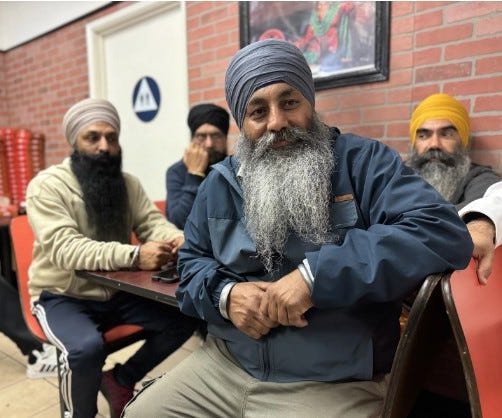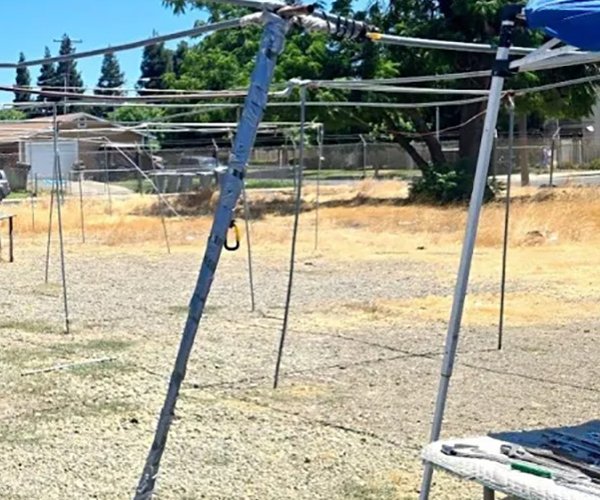Rep. Josh Harder joined other House Democrats on Wednesday to introduce the most ambitious Medicare-for-all plan yet, which would provide a single-payer healthcare system providing insurance to all Americans.
Harder was the only member of Congress from California to speak at the rollout of the bill, known as the Medicare for All Act of 2019 and spearheaded by Rep. Pramila Jayapal (D-WA).
“During my listening tour in the Central Valley, I’ve heard the same thing come up again and again: we need to do something about the costs of healthcare,” Harder said. “In our community, premiums are rising, the cost of prescription drugs are rising, but the quality of care isn’t keeping up. I made a promise to the Central Valley I’d do something about it. Today, we take the first step towards fulfilling that promise.”
The legislation would transition the United States into a system with a single, government-run health plan filled with robust benefits. The bill would mean a future where all Americans are covered, and pay nothing out of pocket when visiting the doctor or a hospital. The benefits package proposed is more generous than what other single-payer countries, like England and Canada, currently offer, and is even more generous than that offered in Sen. Bernie Sanders’ Medicare-for-all plan.
“In our community, premiums are rising, the cost of prescription drugs are rising, but the quality of care isn’t keeping up. I made a promise to the Central Valley I’d do something about it. Today, we take the first step towards fulfilling that promise.”Congressman Josh Harder
Dr. Elaine Peterson, a professor of Economics at Stanislaus State, says that efforts like the Medicare for All Act of 2019 will always be present in American politics, whether they are signed into law or not.
“While we spend more per capita on healthcare than any other country, we don’t have the best health outcomes, so people have been concerned for a while,” Peterson said.
During
a sit-down with Journal staff last week, Harder said he realizes the country is
likely far from passing a Medicare-for-all bill anytime soon.
“I’m signing onto things like Medicare-for-all, which won’t be signed into law in the next two years, but there are also other areas that start to address those same challenges that are doable,” he said. “We can hit singles and doubles with those in the next couple years while we wait for the grand slam.”
Those
“singles and doubles” include attempting to pass legislation that would lower
prescription drug prices, provide better care for veterans and other issues
that are Central Valley-centric, Harder added.
According to Harder’s office, at over $10,000 spent per person annually, the U.S. spends more money on healthcare than any other industrialized nation, though the life expectancy in the U.S. is lower than other nations and the infant mortality rate is much higher. Nearly 30 million Americans are uninsured and at least 40 million more cannot afford the costs of their co-pays and deductibles.
There are over 350,000 uninsured individuals in the Central Valley, the highest region in California after Los Angeles and Inland Empire. In California, over half of uninsured are Latino, a quarter are millennials, and one-in-three earns less than $25,000 per year.
While the details of the Medicare for All Act of 2019 are clear and would certainly help these disadvantaged communities, how the bill would be funded is not as clear. Jayapal has mentioned a wealth tax, or a repeal of Republican tax cuts to pay for the healthcare system, but Peterson warns that such methods could run into trouble.
“It would depend on how the taxes were structured, and how big they are,” she said. “When you raise people's taxes, sometimes they change their behavior and when they do that, you might not get as much revenue as you thought you would.”
Though it may seem foolish to introduce a bill with no way to pay for it, it’s actually typical of most legislation, Peterson said. By introducing the bill, it brings it to the attention of the Congressional Budget Office, which conducts unbiased analyses of different bills to gauge their benefits and cost.
Many Medicare-for-all advocates believe that benefits to public health would far outweigh any costs of the plan, seeing as people may go to the doctor sooner if they are insured, resulting in less costly hospital visits and less money spent on covering those individuals’ care. In addition, vaccination rates, low income mortality rates and other public health problems would likely improve with expanded health coverage.
Now that the Medicare for All Act of 2019 is out in the open, further studies can be conducted to estimate the feasibility of such a mandate, Peterson said.
“I think it’s feasible because it’s universal healthcare and many countries do it now, right? Many of them have better health outcomes than we do, so I understand the appeal,” Peterson said. “But, I think it’s feasible from a public finance perspective...now, is it politically feasible? Is it what the people of the United States want? I’m not sure.”








